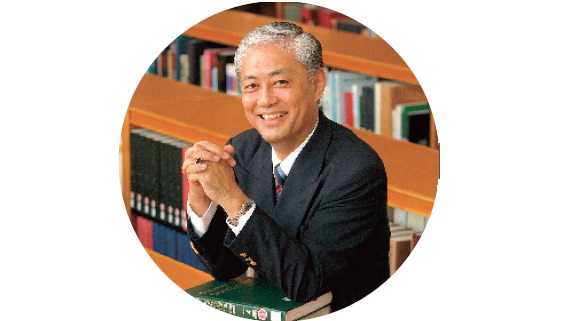SETSUO MIYAZAWA, 57, a native of Hokkaido, received his B.A., M.A., and Ph.D. in law from Hokkaido University and a Ph.D. in sociology from Yale University. His research interests have ranged from the Japanese police system to the development of in-house legal departments in Japanese companies. Today, he is a leading proponent of Japanese legal reform. Previously on the faculties of various Japanese and American law schools, he is currently vice president of Omiya Law School. He talked with Kirk R. Patterson.
WEEKENDER: What led you to become involved in efforts to reform the Japanese legal system?
MIYAZAWA: In the mid-1980s, I wondered why the environmental movement was unable to establish the concept of environmental rights. In most Western countries, citizens can seek injunctions against polluters before they damage the environment. In Japan, however, they can only do so after the environment has been damaged. There were efforts to adopt the Western model, but those efforts were unsuccessful, and it now seems highly unlikely that Japanese courts will ever recognize the concept of environmental rights.
I tried to find a sociological explanation for this, but I concluded that the main problem was the Japanese judicial system. Specifically, the process of recruiting, training and supervising judges has resulted in a very conservative judicial system that makes it difficult for citizens to challenge the government and corporations.
How do you think the Japanese legal system should be reformed?
Japanese legal reform should focus on five different but interconnected areas. First, the Legal Training and Research Institute (LTRI), operated by the Supreme Court, should be abolished. In Japan, law has been offered as an undergraduate major, with the focus being on mastering legal theory and concepts, not on training professional lawyers. Those who pass the bar exam must study at the LTRI. However, its limited enrollment capacity and a curriculum that is aimed primarily at training judges, not attorneys, means that it inhibits the development of a large group of professional lawyers.
Second, in order to abolish the LTRI, we need graduate schools of law to provide professional legal education. This would open the profession to individuals from a variety of academic and social backgrounds and would provide training from a broader range of perspectives.
Third, the legal profession should not have sole responsibility for administering the bar examination. By using the physical capacity of the LTRI as justification, the profession has maintained a bar examination pass rate of only three percent, thereby severely restricting the number of new lawyers and so limiting the public’s access to legal services. People who represent users of legal services should also participate in the administration of the bar examination.
Fourth, judges should be selected from those who already have significant experience as practicing attorneys. Currently, LTRI graduates directly become assistant judges and then, eventually, full judges. This results in a very conservative and uniform judiciary that mitigates against innovation.
Fifth, we need to greatly increase the number of lawyers. At present, there are simply too few lawyers for such a complex economy and society. Japan ranks at the bottom among all developed countries in terms of the number of lawyers per capita.
What progress has been made in these areas?
There has been progress in the establishment of graduate law schools. Based on recommendations of the Judicial Reform Committee, which was charged with creating a judicial system that is more responsive to the needs of the public, law schools came into being in 2004. There are now 68 law schools with a total of 5,700 students. However, even this positive development is not without its problems. The creation of the law schools was supposed to result in many more qualified lawyers, but the Ministry of Justice seems to be trying to limit the number of law school graduates who will pass the bar exam. We will continue to fight against any attempt to maintain an artificially low bar-exam passage rate In most other areas, we see little or no progress, except that the LTRI may play a more limited role in the future.
So what grade would you give the government on judicial reform?
Unfortunately, just a C+. We must continually seek new ways to build a legal system that is better able to help ordinary people address issues that affect their lives.
Kirk R. Patterson, the Dean of Temple University, can be contacted at patterson@tuj.ac.jp









